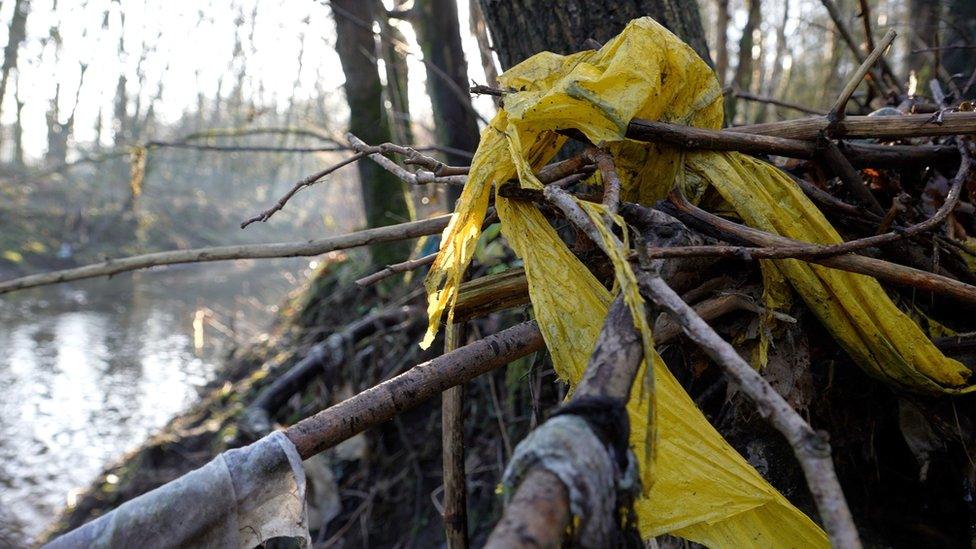Canoeists and kayakers call for water access amid reports of abuse
- Published
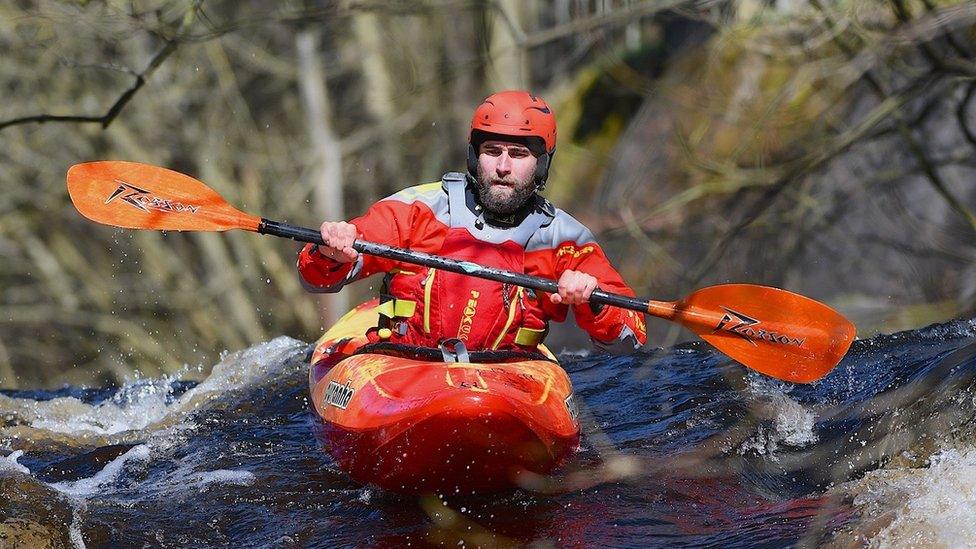
Canoeists and kayakers are calling for clarity on access rights to rivers and canals, amid reports of verbal and physical abuse for using the water.
Governing body British Canoeing said fewer than 4% of England's rivers were legally open to the public and it was unclear if the other 96% could be used.
Kayaker Pete Astles said he and other paddlers cleaning a river were harassed by people "in the bushes watching us".
The government said landowners and users must make their own agreements.
Paddlers have also reported stone throwing, shouting and tyres being let down when using waterways for exercise.
Mr Astles, whose charity PaddlePeak operates on the River Derwent in Derbyshire, said he was on a recent weeklong river clean when a group in boats was confronted by people in bushes at the waterside.
Their behaviour scared some of the group who had come along to paddle the river in the Peak District and pick up rubbish, he said.
"People try to intimidate you, they try to say you're trespassing, you're breaking the law. They put signs up saying 'no canoes and kayaks' and it's all there to put you off going," Mr Astles said.
He said being on the receiving end of aggressive behaviour was a "sad situation" which was stopping people from taking up the sport.
Mr Astles said he was hoping to "come up with some common ground and co-exist in harmony with other river users", adding there was more than enough space for everyone to share the waterways.
'Changing the law'
British Canoeing launched its "Clear Access, Clear Waters" campaign in 2018 to ask the government to secure fair, shared, sustainable open access to waters in England and Wales.
It is now renewing its call for clarity in access laws for waterways in England "so people can enjoy the water on their doorstep".
Multiple landowners and complicated access rules can make it impossible to plan swimming and boating trips, explained Ben Seal from British Canoeing.
The lack of clarity often created issues for paddlers, he said.
"We have had reports come into us from paddlers or swimmers of stones being thrown, getting shouted at from the banks and tyres let down."
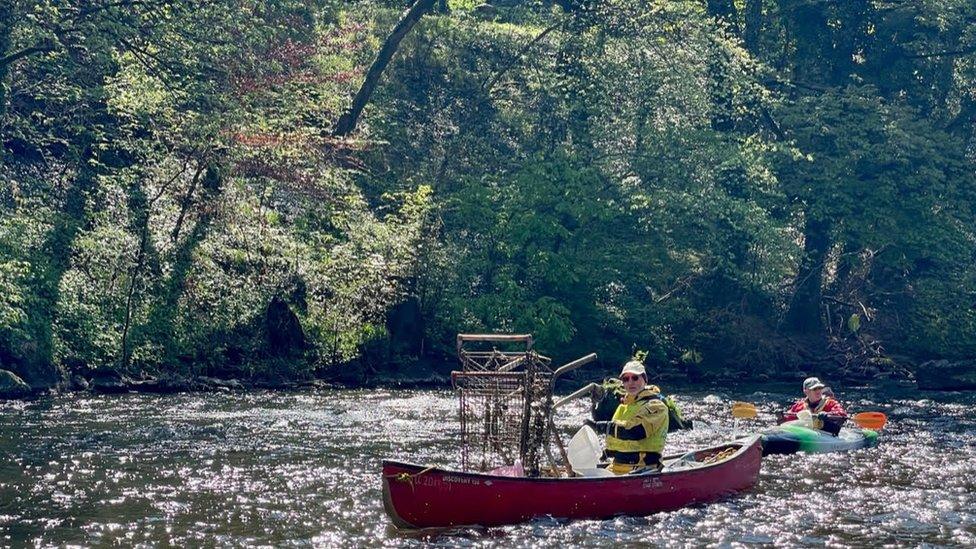
Charity PaddlePeak have reported threats and verbal intimidation while running organised river cleans
Mr Seal said the most frequent form of abuse was "people being approached aggressively" on the water or in car parks and being told they were trespassing, he said.
But he added the campaign to improve access and protect the rivers was not about challenging the abuse, but about "changing the law so this isn't a problem any more".
The Department for Environment, Food and Rural Affairs (Defra) said there were more than 400 designated bathing waters in England.
A spokesman said its policy continued to be to encourage voluntary agreements between landowners and those wishing to use the water and ministers did not have responsibility for inland waterways.
Campaigners also say environmental protection factors, including the dumping of sewage, are often tied with access issues.
Mr Seal explained some rivers were being "degraded", so improving access to rivers would "get people to see and love our waterways" and motivate them to protect them.
He added: "If you can't physically get on these rivers, less people are inclined to care about the rivers."
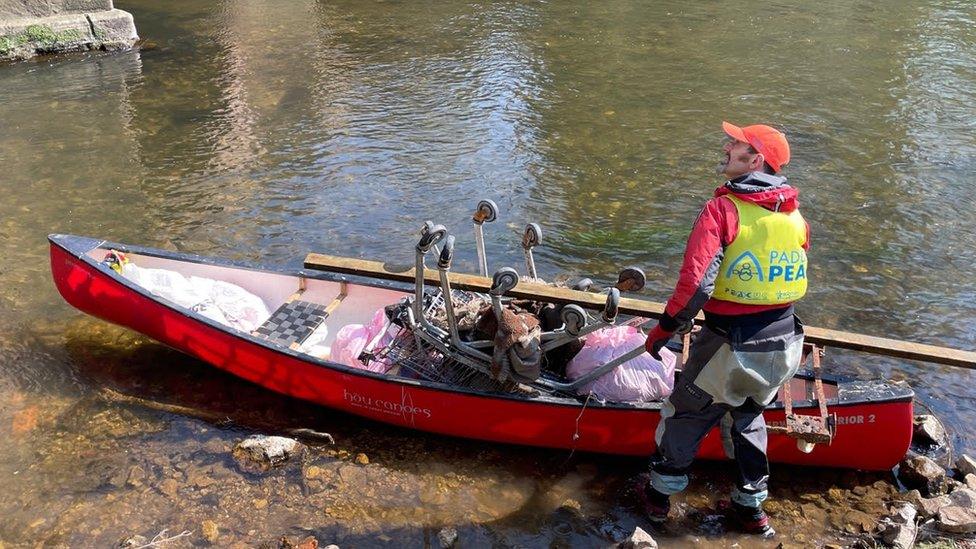
Campaigners also claim sewage is being dumped in rivers.
Mr Astles said during their cleans they have removed wet wipes, sanitary towels and other waste material trapped on the river banks.
"There's literally thousand of them in the bushes, it's disgusting."
Thousands of people took to rivers and waterways in April to protest against water companies dumping sewage.
Describing the "awful" situation with rubbish in the water, Mr Seal said: "You wouldn't accept it in your local park or football pitch… so why are rivers treated differently?"

WHAT IS LIFE LIKE IN MOSCOW NOW? How Putin's war on Ukraine has changed Russia
THE BENEFITS OF ECCENTRIC EXERCISE: Why going down stairs is better for you than going up!

Related topics
- Published12 April 2021
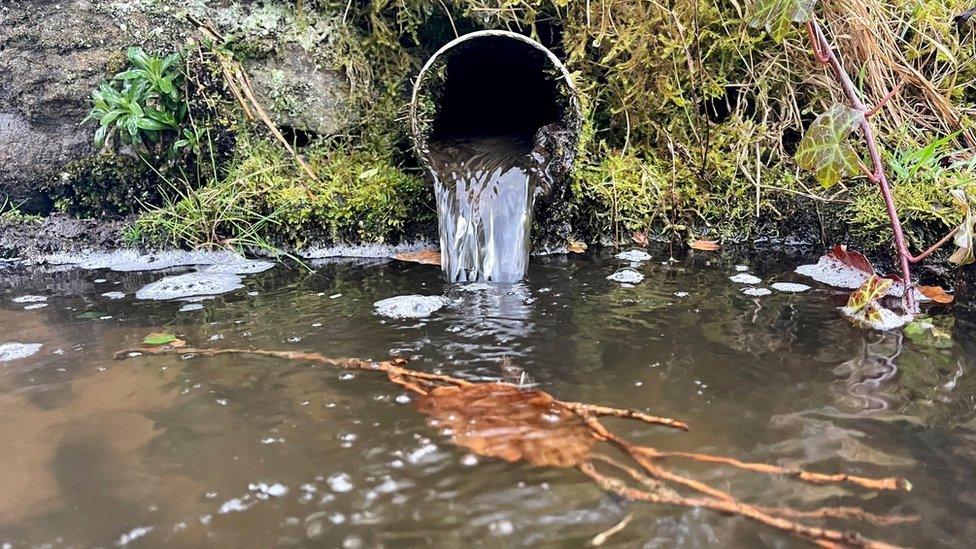
- Published8 November 2021
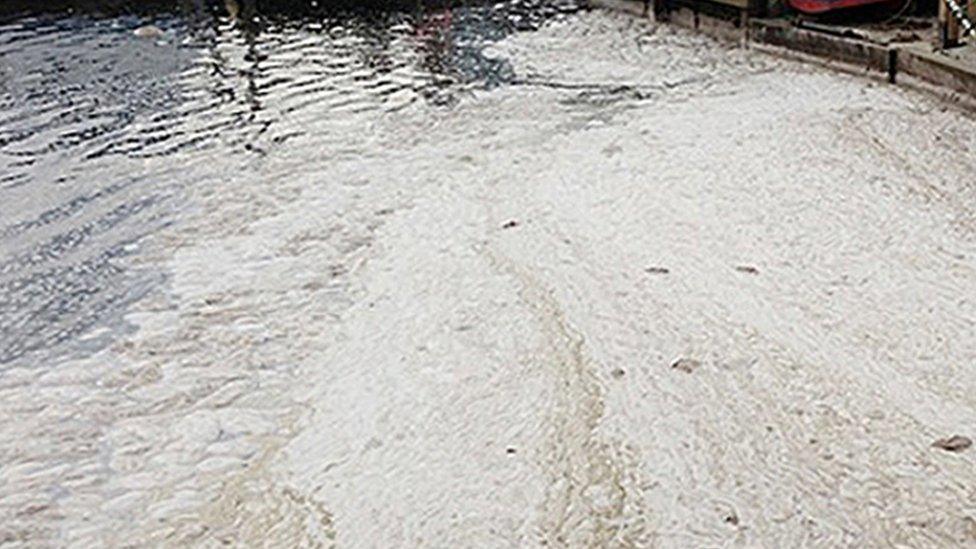
- Published25 October 2021
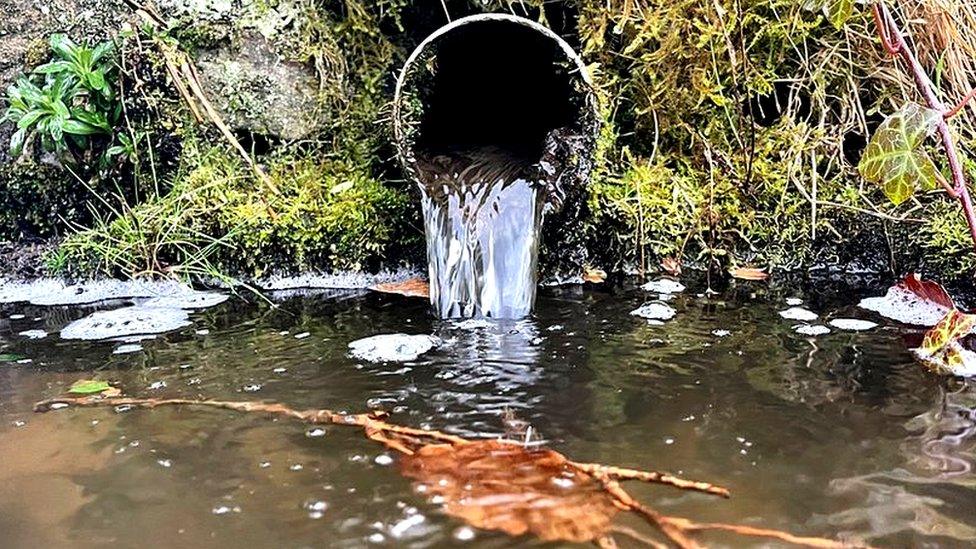
- Published23 April 2022
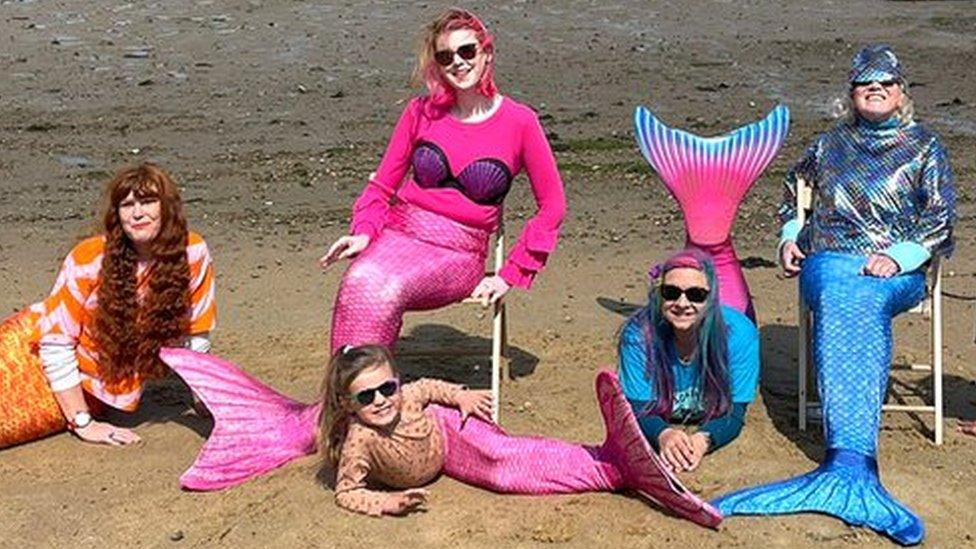
- Published19 January 2022
